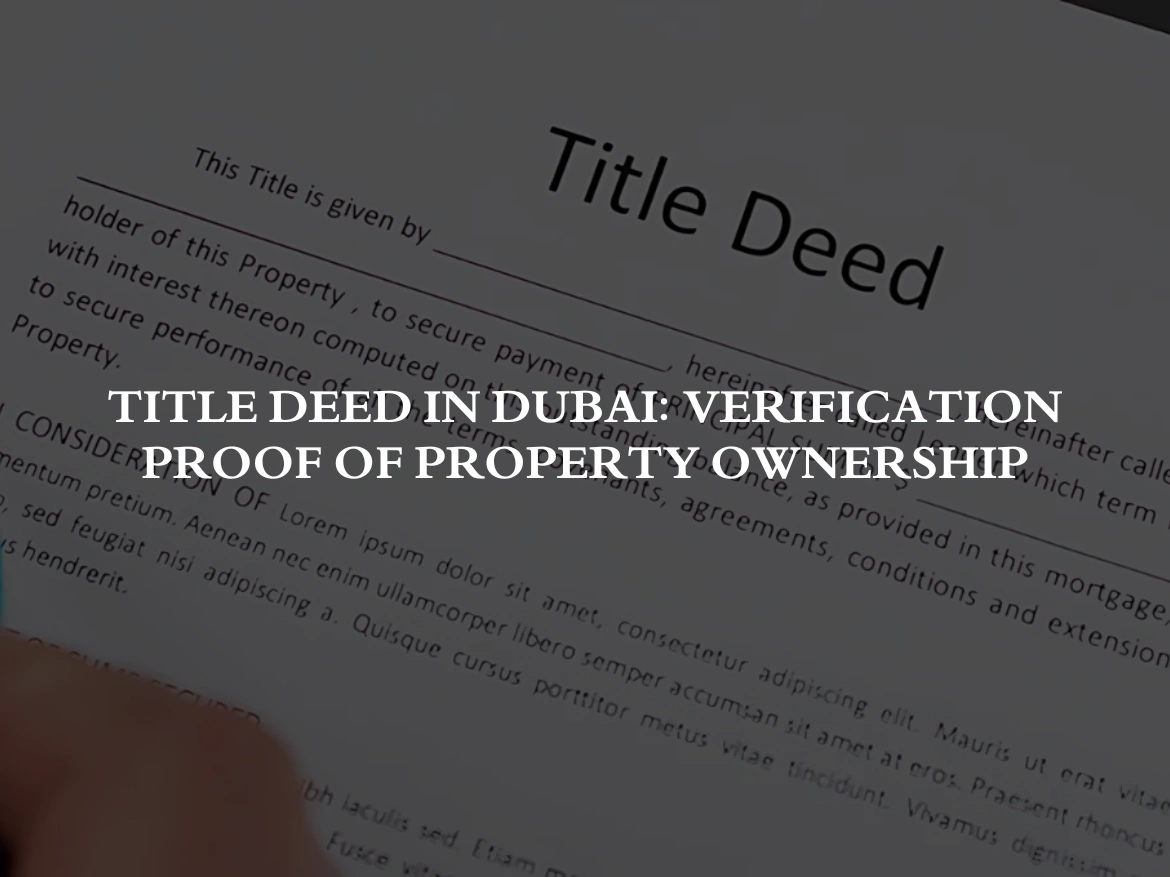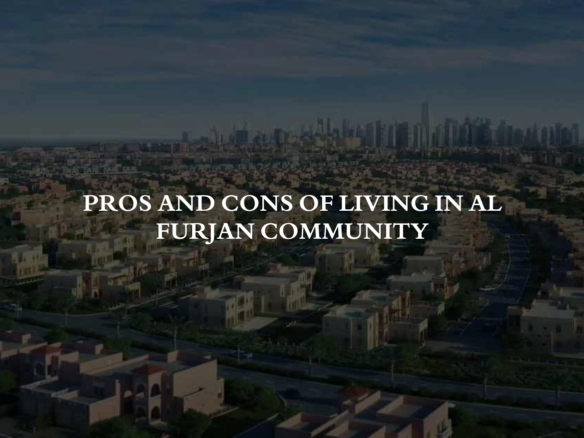People who own property in Dubai are happy to enjoy some of the most secure property rights in the world. Because it is issued by the Dubai Land Department (DLD), the Title Deed is the final and most credible confirmation of ownership. Obtaining your Title Deed is the final step in officially putting the property in your name, whether you’re purchasing a finished apartment, a villa, or a business space. This page discusses what a title deed is, why it is important, how it is created, and how to examine it or obtain a new one.
What Is a Title Deed?
A title deed, often known as an ownership certificate, is a legal document that shows you own land in Dubai. It is Unchallengable proof that the person identified on it has legal rights to a specific piece of real estate.
The Dubai Land Department issues and documents the title deed.This department looks after all land registration and transfer operations in the Emirate. When this document is presented, it indicates that the buyer has fulfilled all of their legal and financial obligations, and the property is now registered in their name.
What does a Title Deed Contain?
Each title deed is quite thorough and standardized. It contains information that identifies both the property and its legal owner. Important details are-
- Owner’s Full Name and ID Details
- Property Type
- Plot or Unit Number
- Location and Community
- Size and Measurements
- Ownership Type
- Registration Number and Issue Date
- QR Code
Title Deed Dubai - Freehold vs Leasehold Properties
There are two main types of property ownership in Dubai: freehold and leasehold. The Title Deed makes it clear which type applies.
- Freehold Ownership: The buyer owns both the house and the land it sits on forever.
- Leasehold ownership means that the buyer owns the building but not the land for a set amount of time, usually 30 to 99 years.
How to Get a Title Deed in Dubai
To obtain a Title Deed in Dubai for a home, you must follow a few steps. As a first step, the buyer and seller must sign Form F, Sales Agreement, at a DLD-approved trustee office. This makes the sale official. Following that, the maker issues a No-Objection Certificate (NOC) confirming that all fees and charges have been paid. The buyer then sends the seller the relevant paperwork, which includes the Memorandum of Understanding (MOU), the original title deed (in case they wish to resell it), copies of their Emirates ID or passport, and evidence of payment.
The buyer must pay the DLD transfer fee, which is typically 4% of the property’s value plus a nominal administration fee. This must be completed after the documents have been examined.
For off-plan residences, the first step toward obtaining a Title Deed is to register the transaction through Oqood. The buyer will then be issued an Oqood Certificate as temporary evidence of ownership. After the project is completed and officially handed over, the developer applies to the Dubai Land Department (DLD) for ownership transfer.
This is done after ensuring that all contractual obligations and building standards have been fulfilled. Finally, once the buyer has paid all of the fees and payments, the Oqood record is converted into a Title Deed. This legally registers the property in the buyer’s name and grants complete legal ownership rights.
Digital Title Deeds
As part of Dubai’s move toward digital government, the DLD now gives out electronic Title Deeds through the DubaiNow site and the Dubai REST app. These digital documents are just as valid legally as paper copies, and they come with a QR code that can be scanned right away to make sure they are real.
- Owners can see a list of all their listed properties, download Title Deeds right away, and use blockchain-secured systems to make sure they are real through the app.
Title Deed Verification
- Download the Dubai REST app.
- Select “Property Details” or “Verify Title Deed.”
- Enter the Property Number and Owner’s Name.
- The app will display the official record, confirming legitimacy.
Need a More information About It?
Our agents will help you explore premium options tailored to your lifestyle, location preferences, and investment goals.
What Can You Do If Title Deed Is Lost
- File a Police Report
- Submit an Application
- Provide Identification Documents
- Pay the Applicable Fee
- The DLD will issue a new Title Deed after verifying ownership records.
Title Deed Dubai FAQ’s
A Title Deed is the last piece of proof that someone owns a property that has been finished. On the other hand, an Oqood Certificate is given for off-plan homes that are still being built. The Oqood record is changed into a Title Deed when the job is finished and ownership is changed hands.
If all the paperwork is in order and the fees are paid, the Dubai Land Department (DLD) will usually send out the Title Deed one to three business days after the trustee office finishes the transfer process.
Yes. In Dubai, people can own land together, and the Title Deed can have more than one name on it. But the ownership amounts must be made clear, like 50%–50% or 60%–40%.
You need to report the lost document to the cops and then go to the DLD to get a new one. For a small fee, the department will check your title records and give you a copy of the Title Deed.
People who own property in Dubai can use their Title Deed to apply for certain types of property-linked residence visas, as long as their property is worth at least AED 1 million.
Of course. The digital Title Deed that you get from the Dubai REST app or the DubaiNow portal is just as valid as the paper copy. Banks, government agencies, and judges all accept it.





Join The Discussion